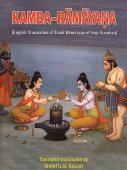Shaila, Śaila: 23 definitions
Introduction:
Shaila means something in Buddhism, Pali, Hinduism, Sanskrit, Jainism, Prakrit, the history of ancient India, Marathi, Hindi. If you want to know the exact meaning, history, etymology or English translation of this term then check out the descriptions on this page. Add your comment or reference to a book if you want to contribute to this summary article.
Shaila has 23 English definitions available.
The Sanskrit term Śaila can be transliterated into English as Saila or Shaila, using the IAST transliteration scheme (?).
Alternative spellings of this word include Shale.
Images (photo gallery)
Languages of India and abroad
Sanskrit dictionary
[Deutsch Wörterbuch]
Source: Cologne Digital Sanskrit Dictionaries: Böhtlingk and Roth Grosses Petersburger WörterbuchŚaila (शैल):—(von śilā)
1) adj. (f. ī; im [Bhāgavatapurāṇa] ā wohl fehlerhaft) steinern: mahāstra [Mahābhārata 3, 12141.] bhūdhara [Harivaṃśa 4407.] pātra [Suśruta 1, 240, 13.] daśa varṣasahasrāṇi śailī sthāsyasi [Rāmāyaṇa 1, 64, 12. 4, 44, 77.] pratimā [Varāhamihira’s Bṛhajjātaka S. 60, 5.] [Bhāgavatapurāṇa 11, 27, 12.] āsana steinähnlich, Bez. einer best. Art des Sitzens [Oxforder Handschriften 11,a, Nalopākhyāna 1.] —
2) m. a) Fels, Felsgebirge, Berg, Gebirge [Amarakoṣa 2, 3, 1. 3, 4, 3, 20.] [Trikāṇḍaśeṣa 2, 3, 1.] [Hemacandra’s Abhidhānacintāmaṇi 1027.] [Anekārthasaṃgraha 2, 514.] [Medinīkoṣa l. 54.] [Halāyudha 2, 10. 5, 20.] [Manu’s Gesetzbuch 1, 24. 10, 50.] [Mahābhārata 1, 1123. 6022. 3, 15250.] [Rāmāyaṇa 1, 1, 39. 34, 8. 2, 25, 7. 48, 10. 54, 38. 4, 36, 8. 44, 115. 6, 108, 19.] [Meghadūta 12.] [?ad 112. Raghuvaṃśa 4, 51. 71. 12, 73. Śākuntala 50. 167. Spr. 3021. 5080. (II) 541, v. l. Varāhamihira’s Bṛhajjātaka S. 4, 23. 11, 42. 12, 1. 70, 10.] pakṣabhaṅga [32, 6.] sapakṣakāḥ [Kathāsaritsāgara 25, 43.] [Naiṣadhacarita 22, 44.] [Rājataraṅgiṇī 4, 381.] [Prabodhacandrodaja 43, 5.] [Bhāgavatapurāṇa 3, 28, 22.] varga [Oxforder Handschriften 183,a,13. 191,b,21. 192,b, No. 437. 193,a,25.] śailānāṃ śikharāṇi [Rāmāyaṇa 4, 8, 5.] śikhara [Vikramorvaśī 10, 6.] śṛṅga [Mahābhārata 1, 1164.] [Spr. (II) 2094. 3466.] kūṭa [Varāhamihira’s Bṛhajjātaka S. 12, 6.] śailāgra [Trikāṇḍaśeṣa 2, 3, 2.] mūla [Suśruta 1, 227, 8.] [Varāhamihira’s Bṛhajjātaka S. 24, 16.] śilā [Prabodhacandrodaja 67, 10.] mahāśailaśilā [Spr. 3188.] mahā [Mahābhārata 3, 2318.] [Rāmāyaṇa 2, 71, 4.] am Ende eines adj. comp. (f. ā) [Mahābhārata 3, 10258. 9, 442.] [Rāmāyaṇa] [Gorresio 2, 45, 16. 4, 36, 9. 6, 3, 51.] [KĀM. NĪTIS. 19, 14.] praviralālpa [Suśruta 1, 130, 14.] — — b) aus metrischen Rücksichten für śilā Stein: śailodbhava steinern [Suśruta 2, 356, 5.] — c) Bez. der Zahl sieben (wegen der sieben Hauptgebirge) [GAṆIT.] [MADHYAM. 4.] —
3) f. ī hardness, stoniness [WILSON] nach [ŚABDĀRTHAK.] (unter śailya). —
4) n. Bez. verschiedener Erdharze, = śaileya und tārkṣyaśailaka [Hemacandra’s Anekārthasaṃgraha] [Medinīkoṣa] = śilājatu [Ratnamālā 290.] — [Varāhamihira’s Bṛhajjātaka S. 77,11.] [Oxforder Handschriften 321,a, No. 761.] — Vgl. krīḍā, caitya, tārkṣya, tuhina, pañca, pāda, pūrva, badarī, maṇi, mantha, mahā, rāja, śrī . Ein etymologisch verschiedenes śailī s. bes.
Sanskrit, also spelled संस्कृतम् (saṃskṛtam), is an ancient language of India commonly seen as the grandmother of the Indo-European language family (even English!). Closely allied with Prakrit and Pali, Sanskrit is more exhaustive in both grammar and terms and has the most extensive collection of literature in the world, greatly surpassing its sister-languages Greek and Latin.
See also (Relevant definitions)
Starts with (+135): Shaila-devagriha, Shaila-griha, Shaila-karman, Shaila-rupakarman, Shaila-vardhakin, Shailabahu, Shailabha, Shailabhadra, Shailabhana, Shailabheda, Shailabhitti, Shailabija, Shailacapa, Shailacarya, Shailacitta, Shailada, Shailadhanvan, Shailadhara, Shailadhatu, Shailadhatuja.
Ends with (+66): Ambarashaila, Aparashaila, Ashaila, Astashaila, Avarashaila, Badarishaila, Bhadrashaila, Caitya-shaila, Caityaka-shaila, Catuhshaila, Chatuhshaila, Dhanyashaila, Dharanidharashaila, Durgashaila, Gajashaila, Gandashaila, Gandhashaila, Ghritashaila, Haimashaila, Hemashaila.
Full-text (+312): Tarkshyashaila, Gandashaila, Shailam, Shailaniryasa, Shailakataka, Purvashaila, Shailasara, Padashaila, Shailata, Badarishaila, Shailapati, Shrishaila, Shailaja, Caitika, Shailagra, Shailajana, Shailasetu, Shailadhiraja, Shailadhanvan, Sela.
Relevant text
Search found 63 books and stories containing Shaila, Śaila, Saila, Saīla, Sāilā, Sāīla, Śailā, Śaiḷa; (plurals include: Shailas, Śailas, Sailas, Saīlas, Sāilās, Sāīlas, Śailās, Śaiḷas). You can also click to the full overview containing English textual excerpts. Below are direct links for the most relevant articles:
Garga Samhita (English) (by Danavir Goswami)
Verse 6.14.35 < [Chapter 14 - The Glories of Ratnākara, Raivata, and Kācala]
Verse 2.3.11 < [Chapter 3 - Description of the Yamunā’s Arrival]
Verses 6.14.19-20 < [Chapter 14 - The Glories of Ratnākara, Raivata, and Kācala]
Hari-bhakti-kalpa-latikā (by Sarasvati Thkura)
Text 47 < [Second Stabaka]
Amarakoshodghatana of Kshirasvamin (study) (by A. Yamuna Devi)
Earth and its aspects < [Chapter 5 - Aspects of Nature]
Amarakośa of Amarasiṃha < [Chapter 1 - Kośa Literature–A Brief Survey]
The Agni Purana (by N. Gangadharan)
Chapter 140 - Description of herbs used in charms
Chapter 141 - Description of herbs used in charms, medicines etc.
Sahitya-kaumudi by Baladeva Vidyabhushana (by Gaurapada Dāsa)
Text 4.86 < [Chapter 4 - First-rate Poetry]
Text 10.204 < [Chapter 10 - Ornaments of Meaning]
Text 7.72 < [Chapter 7 - Literary Faults]
Siddhanta Sangraha of Sri Sailacharya (by E. Sowmya Narayanan)
Related products

